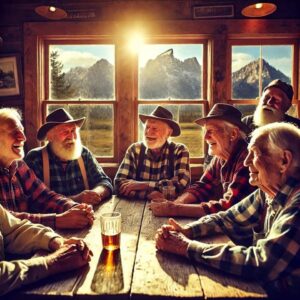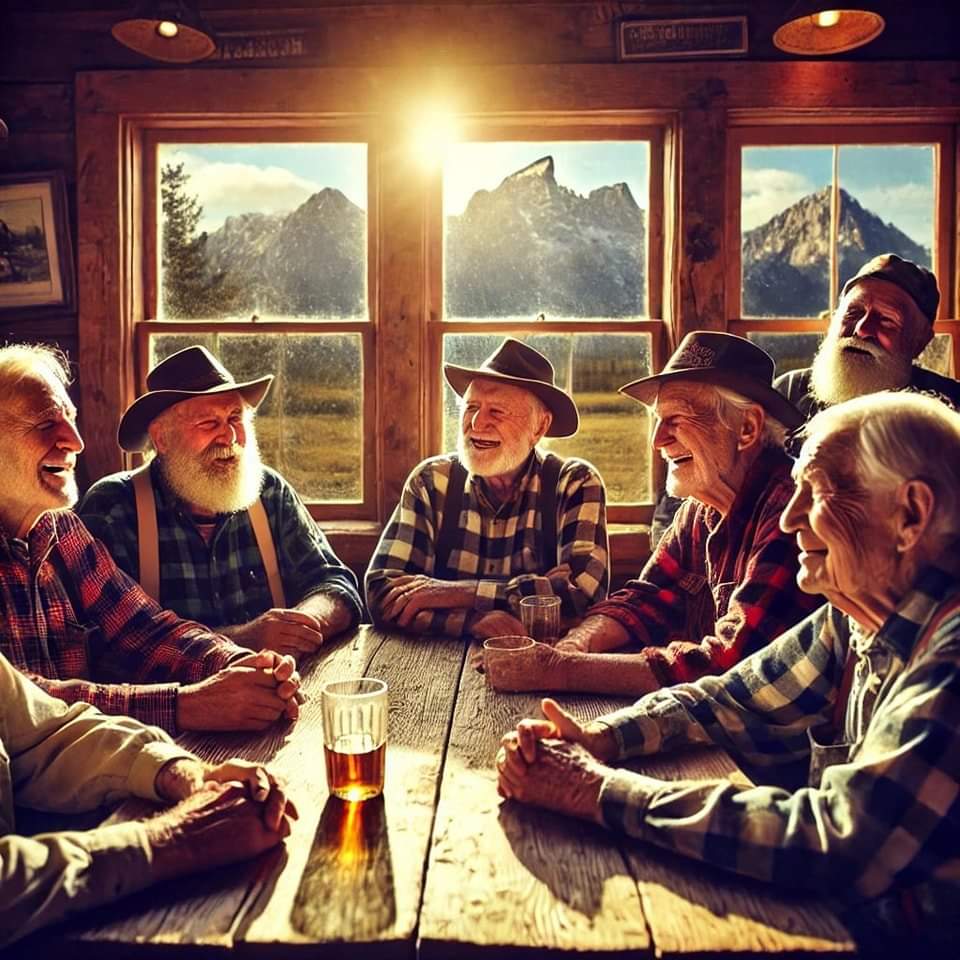The elders of America represent a generation that has laid the foundation for the nation’s growth, stability, and prosperity. Through their sacrifices, contributions, and resilience, they have shaped the country we live in today. As they enter their later years, it is important to acknowledge the impact they have made and ensure that they are fully integrated, respected, and cared for in society. Their experiences and wisdom are invaluable, but with aging often come impairments that require societal support. As a nation, it is our responsibility to show gratitude and provide the care and appreciation they deserve.

A Generation of Sacrifice
America’s elderly population—those who are now in their 70s, 80s, and beyond—lived through some of the most transformative periods in history. Many were shaped by the Great Depression, World War II, the Korean War, and the Vietnam War, as well as the civil rights movements and the rapid technological advancements of the 20th century. The elders of today made immense sacrifices, both at home and abroad, to build and defend the freedoms and opportunities that younger generations enjoy.
Military service and war efforts: Many of the elderly in America today are veterans who served in wars, risking their lives to protect the nation and preserve democracy. Whether fighting in foreign lands or contributing to the war effort at home, they played a crucial role in maintaining the country’s security.
Economic contributions: This generation helped build America’s post-war economy, contributing to its industrial, technological, and infrastructural growth. They worked hard to create a society where future generations could thrive, often enduring difficult working conditions in factories, farms, and offices.

Family and community building: Beyond their contributions to the economy and national defense, the elders of today built the families and communities that form the backbone of American society. Many spent their lives raising children, caring for loved ones, and volunteering to improve their communities, helping to foster values of resilience, hard work, and compassion.
The Enduring Impact of Elders in Society
Elders are not only the carriers of history but also the bearers of wisdom and tradition. Their lives are rich with experiences that younger generations can learn from, offering perspectives that can only come from decades of lived experience.
Wisdom and life lessons: Older adults offer valuable insights on everything from overcoming hardship to navigating relationships and careers. Their long-term perspective can guide younger generations in making better choices, both in personal lives and in societal decisions. The wisdom passed down through intergenerational connections can also help foster greater empathy and understanding across age groups.
Community leadership and volunteering: Many elders continue to contribute to society well into their later years. They are often active in their communities, participating in volunteer work, mentoring programs, and local leadership roles. Their involvement not only benefits others but also gives them a continued sense of purpose and belonging.
Cultural preservation: Elders serve as keepers of cultural and family traditions, passing down stories, values, and practices that might otherwise be forgotten in an increasingly fast-paced and digital world. Whether through family gatherings, oral histories, or community events, they help preserve the cultural richness of the country.
Impairments and Challenges Faced by Elders
While the contributions and impact of elders are immeasurable, aging often brings with it physical, emotional, and social challenges. Impairments such as decreased mobility, cognitive decline, and sensory loss can make daily life more difficult, leaving many elders in need of additional care and support.
Health impairments: Aging often comes with health issues such as arthritis, cardiovascular disease, vision and hearing loss, and dementia. These conditions can affect elders’ ability to live independently, making tasks such as driving, cooking, or managing finances more difficult. Access to quality health care is essential to help manage these impairments and maintain their quality of life.
Social isolation: One of the greatest challenges elders face is social isolation. As family and friends pass away or move, many older adults are left without a strong support network, leading to loneliness and depression. Without regular social interaction, their mental and physical health can deteriorate.
Financial struggles: Despite their lifetime of contributions, many elderly Americans face financial difficulties. The rising costs of health care, housing, and basic necessities can be overwhelming, especially for those living on fixed incomes or Social Security. Some seniors find themselves unable to afford the care they need, forcing them to choose between health care, food, and housing.
How We Can Support and Appreciate Our Elders
As a society, it is our duty to ensure that the elders who have given so much are not forgotten or left behind. There are many ways we can show appreciation for their sacrifices and make their later years more comfortable and meaningful.
1. Provide better health care and support systems: Ensuring that all elders have access to affordable, high-quality health care is essential. This includes expanding Medicare, offering more in-home care options, and improving mental health services for seniors. Additionally, supporting caregivers, whether they are family members or professional aides, can help ensure that elders receive the personalized care they need.
2. Combat social isolation: We can help prevent social isolation by encouraging intergenerational connections, such as community programs that bring together older adults and younger people for activities and mentorship. Social inclusion efforts can also involve technology training to help elders stay connected with family and friends through digital means.
3. Increase financial support: Strengthening social safety nets for older Americans is essential. This may include improving Social Security benefits, offering more affordable housing options, and expanding food assistance programs for low-income seniors. Additionally, tax credits or incentives for those caring for aging family members can ease the financial burden of elder care.
4. Create age-friendly communities: Cities and towns can become more elder-friendly by making public spaces more accessible, offering transportation services for those who cannot drive, and creating community centers where older adults can gather for socializing, fitness classes, and cultural activities. These efforts help integrate elders into the fabric of society and provide them with the resources they need to thrive.
5. Recognize and celebrate their contributions: Finally, it is important to regularly honor and celebrate the contributions of elders. Public events, awards, and storytelling initiatives that highlight the achievements and sacrifices of older generations can help ensure that their legacy is not forgotten. On a personal level, spending time with elderly family members, listening to their stories, and expressing gratitude for their hard work and sacrifices can strengthen family bonds and provide emotional fulfillment for both the young and the old.

Conclusion
America’s elders have given a lifetime of service and sacrifice, shaping the nation in ways that are often overlooked or underappreciated. As they face the challenges that come with aging, it is our collective responsibility to provide them with the care, respect, and support they deserve. By investing in health care, combating social isolation, and creating a society that values their wisdom and contributions, we can ensure that the elders of America live their later years with dignity and appreciation. They have given us so much—now it’s time to give back.
